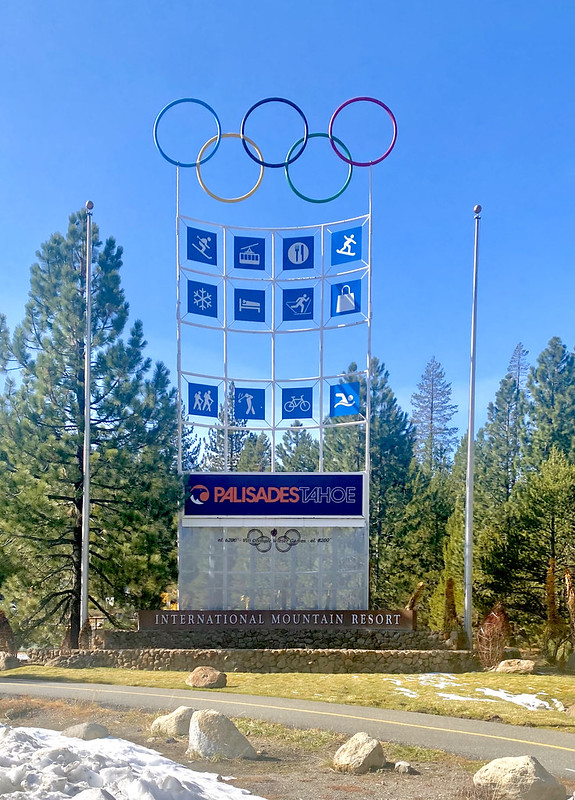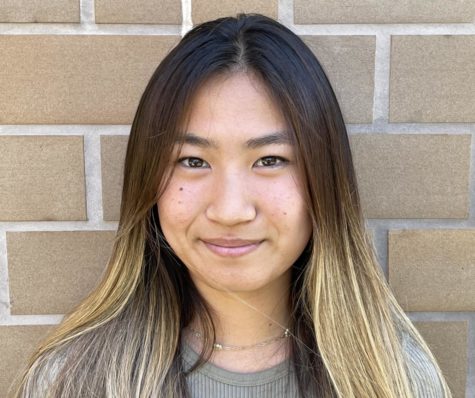Palisades Tahoe makes reparations towards Indigenous women
Squaw Valley officially changed its name to Palisades Tahoe to redress the original name’s bigoted connotations.
January 31, 2022
Due to the racist and misogynistic connotations directed towards Indigenous peoples from its name, the world-renowned ski resort Squaw Valley was renamed Palisades Tahoe on Sept. 13, 2021.
The vastest ski resort in the Lake Tahoe area, Squaw Valley opened in 1949 and hosted the 1960 Winter Olympics, presenting globally esteemed figures such as Walt Disney as Pageantry Director. The surface prestige that this resort boasts belies the deeper historical significance, one that possibly rests in bigotry.
“California has a lot of Indigenous lands and everywhere you go … it’s all Indigenous land,” AP U.S. History teacher Jeanne Scheppach said.
The Washoe tribe has resided in the Lake Tahoe area for around two thousand years, long before the arrival of ski resorts and beating John C. Fremont’s supposed discovery of the region by over millennia. The abundant resources served as the tribe’s sustenance, providing food and shelter. Even the name Lake Tahoe finds its origins in the Washoe phrase, “da ow a ga,” meaning “edge of the lake.” However, Palisades Tahoe’s previous name, Squaw Valley, derives its name from less poetic roots.
A simple Google search defines a squaw as “a North American Indian woman or wife.” Beyond the direct denotation, “squaw” holds a more derogatory meaning.
Many speculate that the term is related to the Mohawkian word, “ojiskwa,” meaning vagina. While this meaning isn’t intrinsically disparaging, the word historically has been used to condemn Indigenous people.
“We talk about stereotypes and mascots and how they adversely affect the mental health of native people, especially children,” Mary Puthoff, the program specialist of the Livermore American Indian Center, said. “Like the word ‘Squaw Valley.’ The word means vagina. So you wouldn’t be saying, ‘This is Vagina Valley.’ But that’s what [people] thought of women. Indian women.”
The ski resort’s change in title was shocking to many, especially to current Truckee/Tahoe residents. Being one of the most renowned mountains locally, Palisades’ previous name is iconic in its community, referencing a defining and popular landmark in the general Tahoe region.
“Few people [in my community] actually thought of it as … a derogatory term,” Charlotte Wagner, a sophomore at Truckee High School, said. “They did not see it as intentionally being negative towards a certain group of people. They just saw it as the name of a mountain.”
But to the Indigenous groups impacted by the derogatory connotation of “squaw,” the innocent casual usages still have negative consequences.
“I’m sure people [name landmarks after Indigenous peoples] to honor the people and we just have to accept that. Like Seattle is named after Chief Si’ahl, who was a special leader, so if it’s a positive thing, there’s nothing wrong with it. It’s just that people don’t know about the [racist connotations behind the] word ‘squaw,’” Puthoff said.
However, as much as some people found the name change as progressive, others felt unfavorable of it. Since Squaw Valley boasts a strong reputation among skiers and locals, the new name, Palisades, is often disregarded. Surprisingly, the term “palisades” is rumored to have negative connotations itself. Though it is by definition “a fence of wooden stakes or iron railings fixed in the ground,” it is allegedly a type of picket fence that was used to keep out Indigenous Americans from selective locations.
“[Most locals] just say ‘Squaw’ … [because] we’ve known [that name] for a long time. People say ‘Palisades’ usually in a mocking tone … and now anytime anyone brings [the new name] up, they usually bring up the picket fence thing and about how [the name change is] just silly,” Wagner explained.
To them, the name change is unnecessarily removing an iconic denomination, and ultimately just replacing a derogatory name with yet another.
As society grows increasingly cognizant of the history behind names and historically harmful connotations, teachers are actively making efforts to educate their students on fundamental Indigenous peoples’ history. Whether it is demonstrating recognition of the past, reflecting on past historical ideas or simply discussing names and different ways to refer to groups, teachers are recognizing the need to foster a more aware and mindful generation, and the Palisades Tahoe’s name change is a part of this beginning.
“[Squaw Valley] had quite a racist background and I think we’re trying to get away from it now, hopefully, and teach the truth,” Puthoff said. “But the best thing you can do is talk to native people themselves; if you run into a native person, ask them about their heritage, because everybody grew up differently.”






